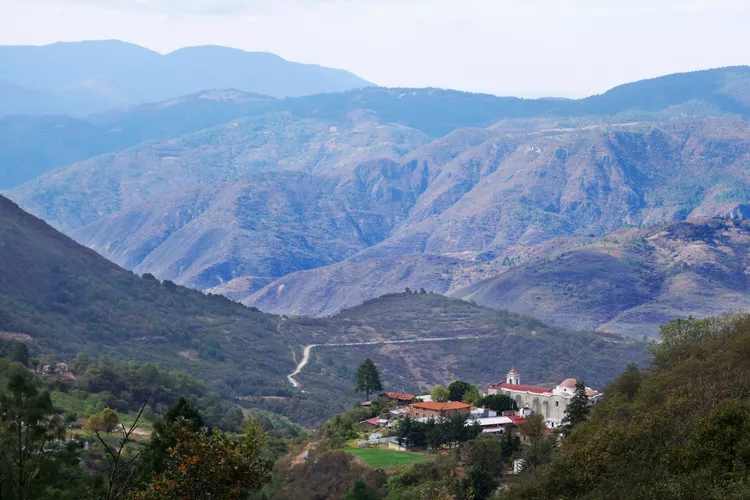Discover Oaxaca: A Journey Through Indigenous Culture and Breathtaking Landscapes
Oaxaca city is a dazzling destination in its own right, but an up-close experience with the region’s Indigenous pueblos and dramatic landscapes makes it even more remarkable.
Oaxaca is renowned for its captivating culinary scene, extraordinary local arts, and colonial atmosphere. Moreover, the surrounding valleys and mountains host Indigenous pueblos that preserve centuries-old artistic traditions, expansive regional markets, and offer amazing hikes. Best of all, renting a car allows easy access to these experiences within a day trip from the city.
Score Original Handwoven Tapetes in Teotitlán del Valle
Tapetes, or textiles, are abundant in Oaxaca’s historic center; however, many are mass-produced or overpriced. Thus, a visit to Teotitlán del Valle, an Indigenous community that continues Zapotec loom-weaving traditions, is recommended.
This remarkable town is a famous center for textile production in Mexico, and the legendary tapetes made here are sought after across the country. A notable artisan, Bulmaro Pérez, represents the ninth generation of his family continuing this beautiful textile art. He expresses the importance of appreciating the work and tradition his Zapotec ancestors passed down.
The intricate designs of these textiles often take up to 14 months to create, drawing inspiration from Zapotec symbols and their native lands. The “Mountains and Rain” design stands out as their most popular, reflecting the majestic Sierra Norte just outside the community.
Visit San Martín Tilcajete for Dazzling Alebrijes
If you’ve visited Mexico, you might have brought home an alebrije. Although these colorful patterns and fantastical creatures are a modern development, their roots trace back to Indigenous artist Pedro Linares’s visions.
San Martín Tilcajete, located just 45 minutes south of Oaxaca city, is celebrated for its unique alebrije designs. Local artisans skillfully carve these vibrant figurines from sacred copal wood and paint them with imaginative patterns. One renowned studio is the Workshop of Jacobo and María Angeles, where the artisans showcase their craft through tours and community programs.
This creative hub, active since 1994, produces tonas (animals of the Zapotec calendar) and nahuales (animal-human hybrids). The workshop emphasizes the significance of sustainability, aiming to preserve Indigenous agricultural practices and replant copal groves through community initiatives.
Bring Home History with Barro Rojo from San Marcos Tlapazola
In Oaxaca’s Centro lies a myriad of famous restaurants, from Criollo to intimate gourmet spots like Teocintle. One unifying feature is the exquisite dishware showcasing heavy, beautifully aged barro rojo, originating from the region’s clay.
This traditional form of art has been practiced by Indigenous communities for centuries. The most striking barro rojo can be found in San Marcos Tlapazola, where local women maintain this craft despite modernization. Historically, barro rojo served utilitarian purposes; today, you’ll encounter stunning vases and decorative pieces, all crafted from locally mined clay.
Experience the Bustle of Tlacolula Market
Every Sunday, the towns and pueblos converging at Tlacolula de Matamoros create one of the largest markets in the state—a sensory overload of sights, sounds, and tastes. Less than an hour from the city center, this lively atmosphere offers everything from tejate to tamales and roasted yucca.
As you enter, the vibrant market buzz encourages exploration of stalls selling cowboy hats, handwoven baskets, and local delicacies, with cheaper prices than Oaxaca city center. Arriving early is advisable, as parking can be challenging.
Marvel at Oaxaca’s Wilderness in the Sierra Norte
Oaxaca’s landscape significantly influences its art, culture, and cuisine. Many breathtaking scenic spots are within just over an hour’s drive.
Santa Catarina Ixtepeji reveals stunning alpine forests replacing arid desert views. The La Cumbre Ixtepeji ecotourism center provides various trails, mountain biking opportunities, and lodges for overnight stays enjoying nature. Numerous scenic clearings along the way serve perfect picnic spots.
Further afield lies the Pueblos Mancomunados, indigenous mountain communities that have organized a well-maintained trail network and lodging options. Many visitors trek from one town to another, spending several days immersed in the area’s natural beauty.
Where to Stay in Oaxaca
El Diablo y la Sandía Boca del Monte stands out as an exceptional boutique hotel located about 10 minutes from the city’s main attractions. With each room uniquely designed and featuring comfortable beds, this hotel exudes a homely atmosphere centered around a lovely courtyard, where guests enjoy phenomenal breakfasts amidst laughter and shared mezcal evenings.
Tips on Renting a Car and Driving in Oaxaca
Renting a car in Oaxaca is both affordable and straightforward, although it is advisable to make reservations in advance. GPS works well in most areas, but downloading offline maps can be helpful, especially when traveling into the mountainous regions. While most highways are in good shape, inquire about potential protests (bloqueos) that may affect route accessibility. Street parking is generally available, but be aware that many lots close on Sundays.




